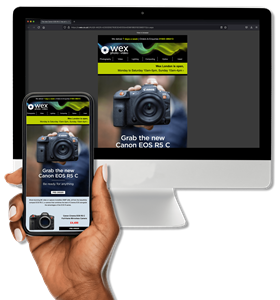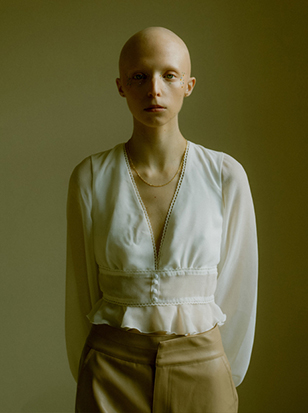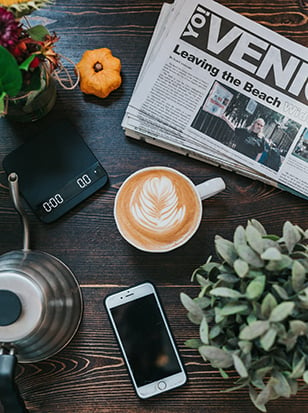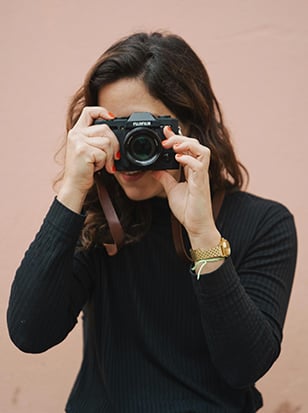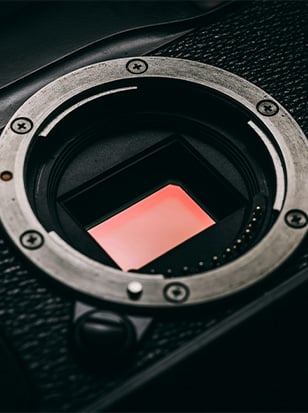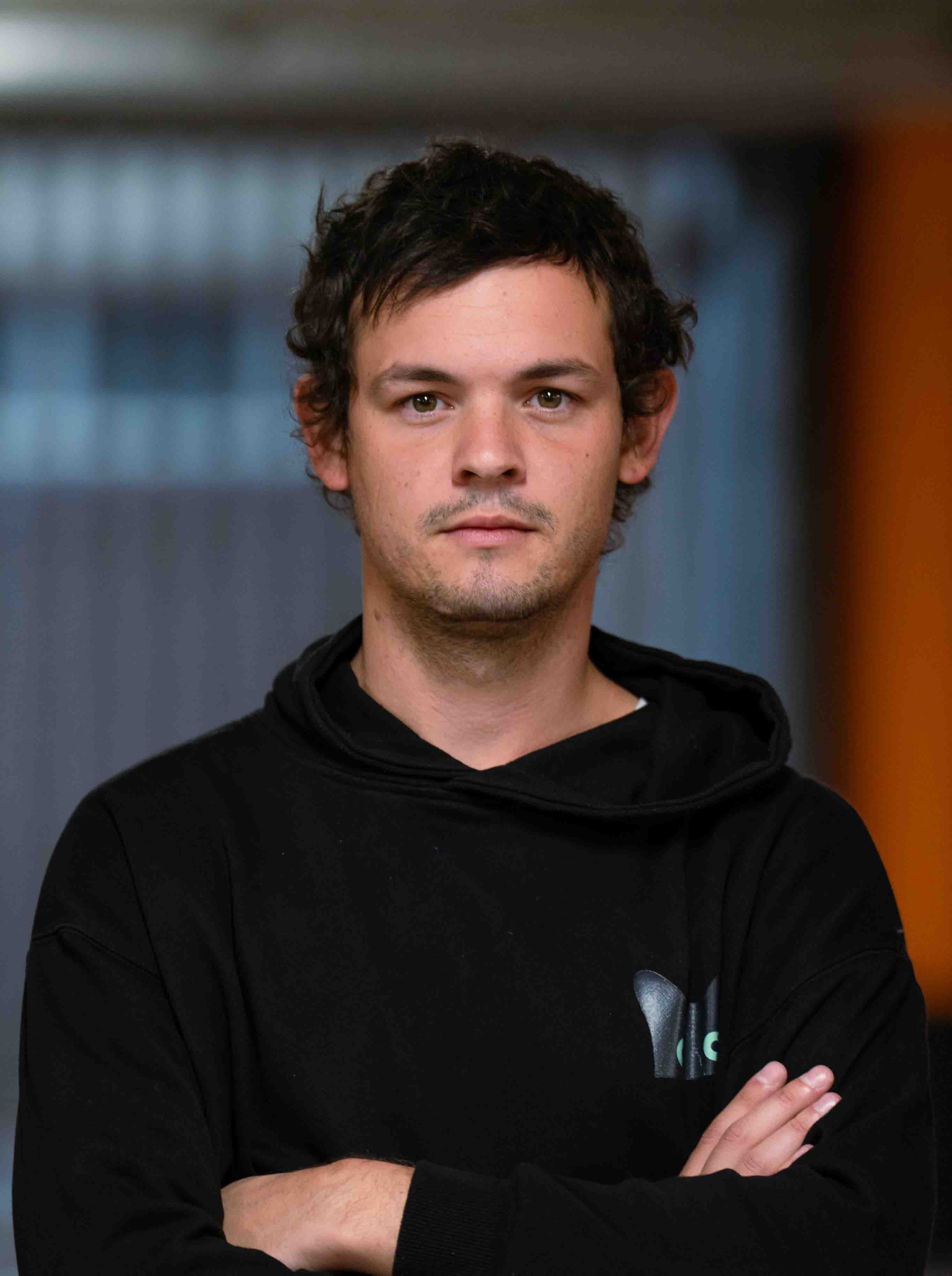
George Johnson
- Job title: Filmmaker and Videographer
- Education: Film Production at the University of Gloucestershire
- Website: georgeyjcreates.com
- Instagram: georgeyjcreates
- Related jobs: Photography assistant, lighting technician, runner
George Johnson is a professional freelance filmmaker and videographer. What’s the difference, you might ask. George is a self-employed creative who produces a range of content ranging from YouTube, social media and documentary content. He’s worked with a variety of clients such as the NHS, Wex Photo Video and the MET police, but also makes time to work with smaller businesses in his local community.
George is a busy person but I was lucky enough to catch him one morning to have a chat about his journey to become an industry professional and how he situates himself in a diverse creative industry.
Leo White: Thanks for taking the time to speak to us, George. I’ll start off by asking, how your interest in this field first arise?
George Johnson: When I was 15, we were given a piece of homework to make a short horror film as part of a Media Studies class. I wouldn’t say that this was the moment I decided that filmmaking would be my career, it was something I really enjoyed doing. It was also the first time I picked up a camera, loaded up editing software and did everything you do to make a video.
LW: So, if that wasn’t the defining moment, how did you get to where you are today?
GJ: I studied Film Production at the University of Gloucestershire and learned a lot. I was given the freedom to make whatever I wanted and make mistakes with no real accountability - a luxury I’ve learned that you’re not afforded in the workplace.
After University, I looked for editor roles in production houses - aside from a few projects, I spent most of my time at uni editing the videos my group’s videos - it’s what I enjoyed most.
I looked for those sorts of roles as well as just “runner” roles to give myself a foothold in the “film industry”. However, when I saw a videographer role at a private boarding school, I went for it and much to my surprise, I was hired. I had no real experience making videos of any value but quickly found I was able to produce the content that they were looking for.
At first, it was fairly easy marketing work; filming graduations, school events etc. that were sent to the parents of the students. Later, once I had “proved my worth”, I worked on bigger projects for the school including more public-facing pieces.
It wasn’t glamorous - financially or creatively. But, it was the perfect place to learn and soak in as much as possible about making films and honing my style. And, if it wasn’t for that job, I wouldn’t have been hired for the next job.
View this post on Instagram
LW: Continuing from there, do you have a notable moment when you knew this would be a career for you?
GJ: A year or so into the job at the school, I felt I had learned everything I could in that role. I decided I needed a new and bigger challenge.
A friend from University had to pull out of a job he was hired for at a yoga retreat in Cambodia. He posted on our University’s Alumni Facebook page (this has always been a great source for potential jobs) to find a replacement. I saw the post, applied and I somehow got it.
I moved out to Cambodia for six months - which of course was amazing - and it helped me realise just how fun and flexible a videography career could be. It was liberating knowing I had the freedom to travel the world, break free from the “norm” without putting my career on hold - and in this case, progress my career!
LW: Could you talk about a challenging moment in your career?
GJ: A difficulty I faced was going freelance. I didn’t understand the business side of it. I wasn’t ready skill-wise and I wasn’t charging a lot for the work that I did. In a way, I tried to run before I could walk.
I’d have tricky clients who would want multiple rounds of amendments I didn’t account for which not only made edits take days longer than they should but would result in me essentially working extra days for free.
Dealing with those tricky clients and learning how to be an independent business person was harder than making the actual videos. They have nothing to do with your ability to create videos and more often than not are only learned from the mistakes you make.
LW: How do you strategise your packages and charge clients?
GJ: Most will have a day rate that covers the time and effort taken to film and edit the content. That can be broken down into full-day/half-day costs, the cost of the kit your bringing in for the shoot and the cost of editing time.
That is generally how the “film industry” works - it’s unionised and has set rates for set jobs. It’s standardised to stop people from working for too little and/or being undercut. It keeps the film industry healthy.
I charge in a somewhat unconventional way. I seldom work on TV or movie productions and therefore don’t consider myself part of the “film industry”. I am a business owner who is approached by clients and asked for deliverables. Those deliverables vary wildly dependent on the client/project and because of that, I provide a bespoke price for each job.
My prices vary depending on who the client is, what they’re asking me to do, how long I think it will take and perhaps most unconventionally, how much I want to do the job. If somebody offers me an opportunity on an interesting project, I will probably charge less. Equally, if it’s a small business owner in my local community, I will charge less than I would charge a national brand because they simply don't have that kind of money, but I still want to do the job and support my local community.
The pricing process caused issues early on in my career. I used to charge less than I should because I wanted to do the job. I was scared that if I quoted what I actually thought, they’d say no - but in reality, I probably cut myself off from a certain level of pay that they would have paid me anyway.
Whereas, I now understand that videography is expensive and if clients say that the price is too high, I am confident enough to say that prices are reasonable. People do not often consider the time it takes to become a professional, let alone the cost of the equipment you bring to a shoot.
View this post on Instagram
LW: Is it a case of looking at the industry standards and adjusting accordingly?
GJ: Yes. I generally work alone, making marketing and social media content, with the occasional documentary work which is a far cry from the larger scale industry of TV, film, large commercials, fashion etc. Those smaller clients will want an all-in-one videographer, like me, and have tighter budgets that I may be able to work with.
For larger projects, it often makes more sense for clients to use production companies with multiple staff and standardised prices.
LW: Would you like to get to that level of production?
GJ: I am undecided. While I think it could be fun, one of the best reasons to be a freelance videographer is that you have complete control and autonomy.
You can recognise a piece of work is yours. Whereas if you work on larger scale productions, while your contribution is vital, it’s a wider organisation and project with input from multiple people. I enjoy running my own business and creating my own work.
LW: Do you define yourself as a filmmaker or videographer?
GJ: There is almost no difference, but for me, videography generally involves more corporate work. Filmmaking is more about creating beautiful videos. For that reason, I would say that I am both.
LW: Do you have any advice for those aspiring to a similar career?
- Make videos for the sake of making videos. Analyse your work and think about what could be better. And repeat.
- Clients want to work with nice people. Being kind, respectful and genuine goes a long way.
- A lot of university courses are designed to prepare you for the film industry in the conventional sense - specialising in an area and working your way up. My advice is to know that simply making beautiful films for a living is an option.
View this post on Instagram
About the Author
Leo White has been part of the Wex Photo Video team since 2018, taking on roles from the contact centre to the product setup team. Holding both a BA and an MA in photography, Leo brings a wealth of expertise he’s always ready to share.
The Wex Blog
Sign up for our newsletter today!
- Subscribe for exclusive discounts and special offers
- Receive our monthly content roundups
- Get the latest news and know-how from our experts
